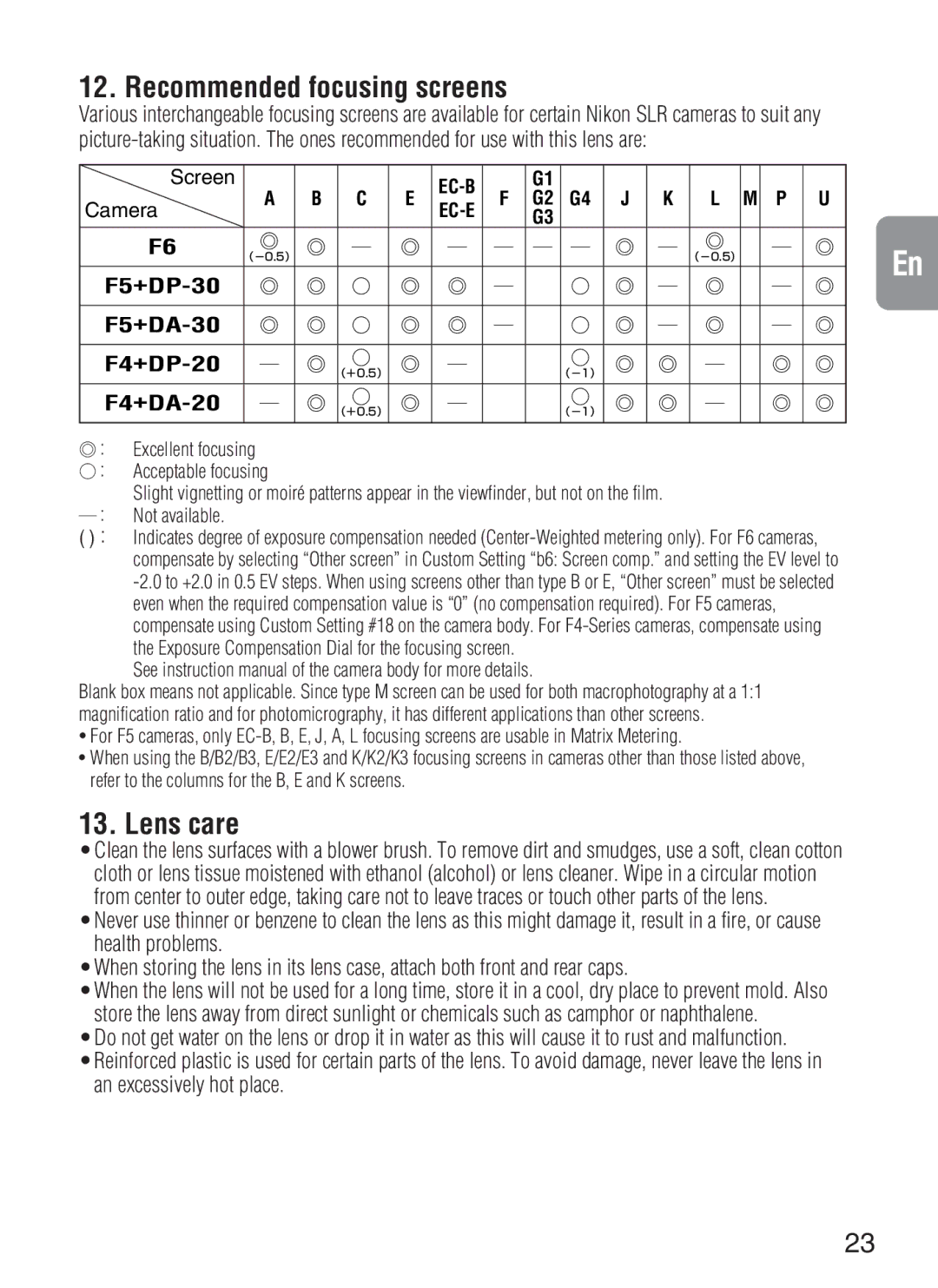
12. Recommended focusing screens
Various interchangeable focusing screens are available for certain Nikon SLR cameras to suit any
Screen |
|
|
|
| G1 |
|
|
|
|
| ||
| A | B | C | E | F G2 G4 J | K | L M P U | |||||
Camera | ||||||||||||
|
|
|
| G3 |
|
|
|
|
| |||
| ◎ |
|
|
|
|
|
| ◎ |
|
| ||
F6 | ◎ | ― | ◎ | ― | ― ― ― | ◎ | ― | ― | ◎ | |||
(-0.5) | (-0.5) | |||||||||||
― ◎ ― ◎ | ||||||||||||
― ◎ ― ◎ | ||||||||||||
― | ◎ | ○ | ◎ | ― | ○ | ◎ | ◎ | ― | ◎ | ◎ | ||
(+0.5) | (-1) | |||||||||||
| ― | ◎ | ○ | ◎ | ― | ○ | ◎ | ◎ | ― | ◎ | ◎ | |
(+0.5) | (-1) | |||||||||||
◎: Excellent focusing
○: Acceptable focusing
Slight vignetting or moiré patterns appear in the viewfinder, but not on the film. ―: Not available.
( ): Indicates degree of exposure compensation needed
See instruction manual of the camera body for more details.
Blank box means not applicable. Since type M screen can be used for both macrophotography at a 1:1 magnification ratio and for photomicrography, it has different applications than other screens.
•For F5 cameras, only
•When using the B/B2/B3, E/E2/E3 and K/K2/K3 focusing screens in cameras other than those listed above, refer to the columns for the B, E and K screens.
13. Lens care
•Clean the lens surfaces with a blower brush. To remove dirt and smudges, use a soft, clean cotton cloth or lens tissue moistened with ethanol (alcohol) or lens cleaner. Wipe in a circular motion from center to outer edge, taking care not to leave traces or touch other parts of the lens.
•Never use thinner or benzene to clean the lens as this might damage it, result in a fire, or cause health problems.
•When storing the lens in its lens case, attach both front and rear caps.
•When the lens will not be used for a long time, store it in a cool, dry place to prevent mold. Also store the lens away from direct sunlight or chemicals such as camphor or naphthalene.
•Do not get water on the lens or drop it in water as this will cause it to rust and malfunction.
•Reinforced plastic is used for certain parts of the lens. To avoid damage, never leave the lens in an excessively hot place.
En
23
